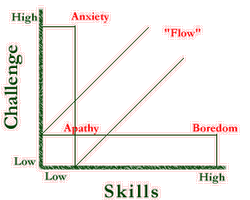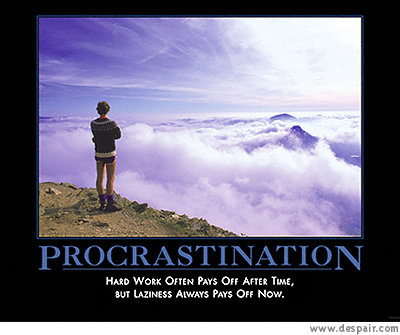|
This is my dynamic, frequently updated homepage. This is a NewsLog, also known as a WebLog or Blog.
Everything is evolving, so don't assume too much.
People to watch:
Adina Levin
Andrius Kulikauskas
Britt Blaser
Catherine Austin Fitts
Chris Corrigan
Clay Shirky
Dan Gillmor
Dave Pollard
David Allen
David Weinberger
Dewayne Mikkelson
Dina Mehta
Doc Searls
Elisabet Sahtouris
Elizabeth Lawley
Euan Semple
Florian Brody
Frank Patrick
Gen Kenai
George Dafermos
George Por
Graham Hancock
Greg Elin
Hazel Henderson
Heiner Benking
Inspector Lohman
Jean Houston
Jerry Michalski
Jim McGee
Jim Moore
John Abbe
John Perry Barlow
John Robb
Joi Ito
Jon Husband
Jon Lebkowsky
Jon Udell
Jonathan Peterson
Judith Meskill
Julian Elvé
Julie Solheim
Kevin Marks
Lawrence Lessig
Leif Smith
Letecia Layson
Lilia Efimova
Lisa Rein
Marc Canter
Mark Oeltjenbruns
Mark Pilgrim
Mark Woods
Martin Dugage
Martin Roell
Mary Forest
Matt Mower
Max Sandor
Michael Fagan
Mike Owens
Mikel Maron
Mitch Kapor
Mitch Ratcliffe
Nathalie dArbeloff
Netron
Noam Chomsky
Paul Hughes
Peter Kaminski
Phil Wolff
Philippe Beaudoin
Ray Ozzie
Raymond Powers
Rebecca Blood
Roger Eaton
Roland Tanglao
Ross Mayfield
Scott Lemon
Sebastian Fiedler
Sebastien Paquet
Skip Lancaster
Spike Hall
Steven Johnson
Stuart Henshall
Thomas Burg
Thomas Madsen-Mygdal
Thomas Nicholls
Timothy Wilken
Todd Suomela
Tom Atlee
Tom Munnecke
Tom Tomorrow
Ton Zijlstra
Lionel Bruel
Loic Le Meur
Nancy White
Mark Frazier
Merlin Silk
Robert Paterson
Colby Stuart
Nova Spivack
Dan Brickley
Ariane Kiss
Vanessa Miemis
Bernd Nurnberger
Sites to watch:
Electronic Frontier Foundation
Co-intelligence Institute
Free Expression Network
Collective Intelligence
Action without borders
Manufacturing Dissent
Explorers Foundation
Disclosure Project
ThoughtsOnThinking
Forbidden Science
Emergent by Design
Greater Democracy
Global Ideas Bank
Independent Media
Space Collective
Friendly Favors
Escape Velocity
Disinformation
Collective Web
WorldChanging
YES Magazine
Disinfopedia
NotThisBody
MetaFilter
Webcamorama
BoingBoing
Smart Mobs
Do No Harm
Imaginify
FutureHi
Openworld
Nanodot
HeadMap
Rhizome
Absara
Edge
Junto
French:
Emmanuelle
Manur
Elanceur
Loeil de Mouche
IokanaaN
Blog d'Or
Le Petit Calepin
GeeBlog
Absara
Guillaume Beuvelot
Ming Chau
Serge Levan
Jean Michel Billaut
C'est pas Mécanique

I live in Toulouse, France where the time now is:
01:08
Unique Readers:

Primarily
Public Domain
Everything I've written here is dedicated to the
Public Domain.

The quotes from other people's writings, and the pictures used might or might not be copyrighted, but are considered fair use. Thus, overall, this weblog could best be described as being:
Primarily Public Domain. |
Syndication:
 ![Validate my RSS feed [Valid RSS]](http://www.newciv.org/pic/valid-rss.png)
|
| Wednesday, December 18, 2002 |  |
|
|
|
Philippe Beaudoin has some good thoughts about weblogs as meta search engines. Rather than just directly looking for information within all the information in the world, a weblog makes certain indirect factors much more important, and it makes it more potentially useful to go off on a tangent. If you find a story that you think is important and useful on somebody's weblog, chances are that you would like other things in the same weblog, even if they are on totally different topics, and chances are good that you will like the stuff on other weblogs that this person is recommending. Automated tools might take that into consideration. For example, an approach similar to Google's PageRank might allow you to assign a value to a certain weblog, and automatically it will rub off on weblogs that are related to that one. That will enable you to better navigate a network of weblogs that is likely to give you stuff you want. And it opens the door to more productive randomness. That is something I like pursuing as well - intelligent randomness, increasing the occurrence of synchronicity. It is often stimulating to be thrown off a bit in a direction different from what you would expect, but only if some pre-selection has taken place. Most of the 100,000 weblogs are quite uninteresting to me, but I'd like to be exposed to unexpected stuff at the edge of what I'm aware of. A friend of a friend whom I don't know yet.
[ Knowledge | 2002-12-18 16:04 | | PermaLink ] More >
|
|
|
|
 I was watching a documentary on HBO about this artist Spencer Tunick who has been traveling America and the world, photographing nude people in unusual settings and arrangements. Now, what was very refreshing and inspiring about that is that there is nothing lewd or even tintilating about how he does it. It is very normal people, not picked based on any standard of physical beauty, but mainly based on that they're real people that one meets on the street. And there is something very powerful and beautiful that comes from that. Besides being art, and performance art, it is activism. It is activism asking us to look at things a bit differently, and breaking through stupid bourgeois norms for what is proper and expected. I was watching a documentary on HBO about this artist Spencer Tunick who has been traveling America and the world, photographing nude people in unusual settings and arrangements. Now, what was very refreshing and inspiring about that is that there is nothing lewd or even tintilating about how he does it. It is very normal people, not picked based on any standard of physical beauty, but mainly based on that they're real people that one meets on the street. And there is something very powerful and beautiful that comes from that. Besides being art, and performance art, it is activism. It is activism asking us to look at things a bit differently, and breaking through stupid bourgeois norms for what is proper and expected.
[ Inspiration | 2002-12-18 16:25 | | PermaLink ] More >
|
|
|
|
 Years ago I wrote up a vision about a synergetic society that I called HoloWorld. It is incomplete, and I still hope to put more meat on it, but nevertheless it is fairly detailed. It all boils down to some very simple principles, like: Years ago I wrote up a vision about a synergetic society that I called HoloWorld. It is incomplete, and I still hope to put more meat on it, but nevertheless it is fairly detailed. It all boils down to some very simple principles, like:
People are free to choose how to live
That can be expressed in an assortment of ways, each of which is more or less likely to be misunderstood by a lot of people. "People can do what they want". "An it harm none, do what thou wilt". Anyway, when used as an organizing principle, a whole lot of other principles and approaches would have to come from that. As everybody aren't likely to agree on how they want things, we must inevitably have:
Negotiation of self-interest taking place along the edges
Edges of what? Edges of any space of any kind where one or more people have a certain interest, a certain agreement on how things are supposed to be. So, if anybody has a different idea about what is supposed to happen, there's something to talk about. And if groups of people arrive at somewhat homogenous agreements on how they like things to be, but some people don't like it, there's then a need for:
Voting with your feet
Meaning, that if you don't like how things work in one place, you move into another place where things are more to your liking, or you make a new place and invite people to come to it. That implies the principle that you are allowed to arrange things in different ways in different places.
[ Patterns | 2002-12-18 02:41 | 0 comments | PermaLink ] More >
|
|
| Tuesday, December 17, 2002 |  |
|
|
|
 CNet: "Prisoner rights groups are cheering a federal court ruling that quashes attempts to halt Web postings that mention prisoners." Good. I'm quite familar with the problems that prisoners face in trying to call attention to injustices they've experienced. For many months last year I was helping Bruce Lisker put up his website. He has spent the last 19 years in prison here in California for a murder he didn't commit. He was a screwed up kid on drugs, hanging out with the wrong crowd, living here in Van Nuys where I also happen to live. His parents lived also close by here, in Sherman Oaks, and were rather well to do. A 'friend' of his murdered his adoptive mother while trying to rob her, after having visited the day before and noticing they had money, and he didn't. Bruce got convicted for it, because he looked the part, and he was the first to show up and get blood on his clothes, and the investigating detective, Andrew Monsue, decided right away it was him, and stepped lightly over the facts, and a combination of factors conspired against him. Nobody in his family ever believed it was him, and the real killer was relatively easily identified as a John Michael Ryan, but there was nothing they could do. It is not easy to change the mind of the law, and Bruce has been sitting in San Quentin and similar places more than half of his life, studying the law, trying to have his case re-heard. Today he's a decent and polite fellow. I have no doubt about his story either, having spoken with him many times and looked at his case. But he was working somewhat blindly trying to get a website up, to call attention to his case, as inmates aren't allowed to touch anything that is connected to the Internet, so his only knowledge of the web was from magazines. Anyway, his site finally got up. Somebody else is maintaining it today. CNet: "Prisoner rights groups are cheering a federal court ruling that quashes attempts to halt Web postings that mention prisoners." Good. I'm quite familar with the problems that prisoners face in trying to call attention to injustices they've experienced. For many months last year I was helping Bruce Lisker put up his website. He has spent the last 19 years in prison here in California for a murder he didn't commit. He was a screwed up kid on drugs, hanging out with the wrong crowd, living here in Van Nuys where I also happen to live. His parents lived also close by here, in Sherman Oaks, and were rather well to do. A 'friend' of his murdered his adoptive mother while trying to rob her, after having visited the day before and noticing they had money, and he didn't. Bruce got convicted for it, because he looked the part, and he was the first to show up and get blood on his clothes, and the investigating detective, Andrew Monsue, decided right away it was him, and stepped lightly over the facts, and a combination of factors conspired against him. Nobody in his family ever believed it was him, and the real killer was relatively easily identified as a John Michael Ryan, but there was nothing they could do. It is not easy to change the mind of the law, and Bruce has been sitting in San Quentin and similar places more than half of his life, studying the law, trying to have his case re-heard. Today he's a decent and polite fellow. I have no doubt about his story either, having spoken with him many times and looked at his case. But he was working somewhat blindly trying to get a website up, to call attention to his case, as inmates aren't allowed to touch anything that is connected to the Internet, so his only knowledge of the web was from magazines. Anyway, his site finally got up. Somebody else is maintaining it today.
[ Politics | 2002-12-17 15:15 | | PermaLink ] More >
|
|
|
|
 The Creative Commons is now officially open, since yesterday. It is an organized effort of helping people to choose and express the proper license for their creative works. Specifically, the intention is to help people selectively share their materials, while still maintaining ownership. E.g. you might allow free distribution for non-commercial use. The site will help you easily choose what license is best for you. Personally I prefer Public Domain, which is not really a license, as there is no restrictions. But the Creative Commons categories are great for anything that lies somewhere between All Rights Reserved (don't ever touch my stuff) and Public Domain (do whatever you feel like). There's a great Flash presentation about it here. The Creative Commons is now officially open, since yesterday. It is an organized effort of helping people to choose and express the proper license for their creative works. Specifically, the intention is to help people selectively share their materials, while still maintaining ownership. E.g. you might allow free distribution for non-commercial use. The site will help you easily choose what license is best for you. Personally I prefer Public Domain, which is not really a license, as there is no restrictions. But the Creative Commons categories are great for anything that lies somewhere between All Rights Reserved (don't ever touch my stuff) and Public Domain (do whatever you feel like). There's a great Flash presentation about it here.
[ Knowledge | 2002-12-17 16:57 | | PermaLink ] More >
|
|
|
|
 IM - Instant Messaging - is my most important business communication tool. I mention that because quite a few people seem to think it is about wasting time chatting with people all day about nothing. I have little interest in that. That is also why I don't list my IM account numbers in the sidebar here, because I don't want to invite just anybody to drop by and ask me how the weather is. IM is a high priority channel for me, for short business-like messages, but it is also something I can answer in my own time. I get too much e-mail to easily notice everything. I don't like phonecalls much, as I can pretty much do nothing else while talking. I'm multi-tasking, I usually do several things at the same time. I mainly use ICQ because it has the professional features I need, like archiving and being able to write to people who're off-line, and because everybody I do business with are on ICQ. I'd like to get into Jabber, as it is open source, and I can interface with it from my programs, but I haven't had time yet. IM - Instant Messaging - is my most important business communication tool. I mention that because quite a few people seem to think it is about wasting time chatting with people all day about nothing. I have little interest in that. That is also why I don't list my IM account numbers in the sidebar here, because I don't want to invite just anybody to drop by and ask me how the weather is. IM is a high priority channel for me, for short business-like messages, but it is also something I can answer in my own time. I get too much e-mail to easily notice everything. I don't like phonecalls much, as I can pretty much do nothing else while talking. I'm multi-tasking, I usually do several things at the same time. I mainly use ICQ because it has the professional features I need, like archiving and being able to write to people who're off-line, and because everybody I do business with are on ICQ. I'd like to get into Jabber, as it is open source, and I can interface with it from my programs, but I haven't had time yet.
For those who don't know what IM is - it is a little program running on your computer which allows you to send a message to somebody you know, and the message can pop up right away for them at the other end. But they don't have to answer right away. So, you can have a conversation without having to be fully present. For you Europeans - it is SMS on your computer, and for that matter, there are various ways of sending messages between cellphones and IM programs.
[ Diary | 2002-12-17 17:24 | | PermaLink ] More >
|
|
| Monday, December 16, 2002 |  |
|
|
|
 In this article on AlterNet, Diane Perlman points out correctly that nobody seemed to pay any attention to what Osama bin Laden actually said in his last few 'official' messages. In this article on AlterNet, Diane Perlman points out correctly that nobody seemed to pay any attention to what Osama bin Laden actually said in his last few 'official' messages."While media experts were preoccupied with analyzing Osama bin Laden's voice, they failed to comprehend, or even read, his actual words. Speculation about hidden meanings and secret clues totally ignored the obvious intended message, which is so clear that it doesn't even need decoding.[...]
All of bin Laden's messages have a consistent theme, emotional tone and logic. All are about reciprocity, expressed in many different ways. The message from Nov. 12, 2002, began, 'The road to safety begins by ending the aggression. Reciprocal treatment is part of justice. The incidents that have taken place ... are only reactions and reciprocal actions.'[...]
Bin Laden's messages are misinterpreted as unconditional threats and vows to attack. This is incorrect. They are all conditional warnings that whatever we do, they will respond in kind. What is missed by media and political leaders, whether intentionally or unconsciously, is the conditionality, the centrality of our role in provoking retaliation or preventing retaliation and reducing terrorism." Read the whole article. Of course none of that legitimizes what Bin Laden is doing, but she's right. He says he'll pay back the aggressions, but that he, for example, wouldn't use nuclear weapons first. He is talking about reciprocity. Paying back. Retaliating. Evening the score. But that is not of much comfort, as an immature U.S. government continously supports and carries out plenty of aggressive and oppressive campaigns overseas that he and other terrorists might find ample reason to retaliate against. The escalation could quickly be stopped if the U.S. stopped trying to always get the last word in terms of retaliation, and if it stopped the dangerous planning for preemptive strikes. And, even better, if the U.S. would actually listen, and discover what it is people have been so mad about in the first place.
[ Politics | 2002-12-16 16:36 | | PermaLink ] More >
|
|
|
|
 Doc Searls: "I came to the conclusion ... that blogging is about nothing more than writing — and that more of us will be writing to more people, with more effect, because of it. Every new blogging tool is one more step in the evolution of the Web as, literally, the ultimate writing medium: one that lets anybody write for everybody."
Britt Blaser: "The problem with a planet of bloggers is, how can we quantify the clustering of discrete trends and imperatives the bloggers feel strongly about? My proposal continues to be a coherent blog aggregation protocol:
Culture-wide Blog-based Knowledge-Logs
Let's take all blogs' RSS feeds and slice and dice them to aggregate our combined sensibilities.
1) Create a mechanism for people to identify and define the issues they care about, and the major positions that surround each issue.
2) Inspire and help bloggers to structure their RSS feeds to expose which issues they're discussing and where they stand on each issue.
3) Let bloggees indicate where they stand on each issue as they view it. Compile all these data points and let a million flowers bloom." Yep, we'll need something new and better. I follow around 30 weblogs through their syndicated RSS feeds, aggregated in Radio Userland on my computer. I look at maybe 10 more directly. And I pay attention to the 50 or so newslogs that are automatically aggregated in the NCN member area. But otherwise, what I run into depends on luck and synchronicity.
There are around 15,000 weblogs that are tracked by the prevalent blog ecosystem sites. And there are maybe 50 or 100,000 total. And, as Doc Searls says, it is basically writing. People writing words. But it also emerging as something more - a grassroots global brain of sorts. But to make it actually work well at that, we need better tools, better structure, better ways of navigating the whole thing. Beyond being just 100,000 daily journals, or 100,000 soapboxes and megaphones, I want to sense what it adds up to. How do the winds blow? Where does the grass grow?Britt Blaser: "I want a new superorganism - a culture - that reflects my values and beliefs, and I want that culture to take over the world as soon as possible. I want freedom from want through economics based on abundance, not scarcity. I want young people raised by adults confident enough to be gentle, reasonable and informed enough to mentor them skillfully. I guess I want to live in Jean-Luc Picard's world. Above all, I want patriarchy and fundamentalism to be a distant bad dream. Is that too much to ask?" No, it isn't. I want it too.
[ Knowledge | 2002-12-16 21:09 | | PermaLink ] More >
|
|
|
|
 "Metalogue (1996, 3 min., play video) by Peter Rose has been described as a cross between a speech and a fireworks display. Digital editing techniques have been used to reflect and refract a complex monologue about memory, time, and language. By embedding the corresponding gestures in a spectacular diachronic array, Rose creates a new form of poetry. Metalogue won a Bronze Award at the New York Short Film and Video Festival." I'm not entirely sure what it means, but it is kind of deep and cool. "Metalogue (1996, 3 min., play video) by Peter Rose has been described as a cross between a speech and a fireworks display. Digital editing techniques have been used to reflect and refract a complex monologue about memory, time, and language. By embedding the corresponding gestures in a spectacular diachronic array, Rose creates a new form of poetry. Metalogue won a Bronze Award at the New York Short Film and Video Festival." I'm not entirely sure what it means, but it is kind of deep and cool.
[ Inspiration | 2002-12-16 22:08 | 0 comments | PermaLink ]
|
|
| Sunday, December 15, 2002 |  |
|
|
|
 From Tom Munnecke Vicious Circles/Networks to Virtuous Circles/Networks: From Tom Munnecke Vicious Circles/Networks to Virtuous Circles/Networks:"One of Senge's patterns is the general problem addiction loop. Quick fixes seem to solve a problem, but often feed back to create other problems. Fundamental solutions which take longer to understand and implement are ignored in the flurry of quick fixes, creating a vicious circle. The flurry of quick fixes then feeds some kind of assessment system which makes it appear that we are being productive, with all that activity going on. This is like trying to get out of a hole by digging it deeper, and measuring your productivity by how many shovelfuls you scoop each day.
The flip side of this is to create a virtuous circle, addressing the fundamental issue to create a solution-generating feedback loop. This dissolves problems rather than solves them, which appears to be infinitely unproductive to those who use problem-solving metrics..." And let me add this quote which says the same kind of thing:"It is not enough to be busy, so are the ants.
The question is: what are we busy about?"
- Henry David Thoreau
[ Patterns | 2002-12-15 23:58 | | PermaLink ] More >
|
|
|
|
 I spent part of the day at Peace Sunday. It was a big all-day thing in the L.A. Convention Center. Might have been a thousand people or so. Spearheaded by Leland Stewart of the Unity-and-Diversity Council, with a lot of help. I didn't have time to stay very long, but Dennis Kucinich' speech was great, and I met a lot of people I know. I spent part of the day at Peace Sunday. It was a big all-day thing in the L.A. Convention Center. Might have been a thousand people or so. Spearheaded by Leland Stewart of the Unity-and-Diversity Council, with a lot of help. I didn't have time to stay very long, but Dennis Kucinich' speech was great, and I met a lot of people I know.
[ Diary | 2002-12-15 23:59 | | PermaLink ] More >
|
|
|
|
I follow a bunch of weblogs where techies are talking about technology related to weblogs. The kind of people I mostly pay attention to in that regard are those who speak in a language I understand, like Dave Winer or Jon Udell or many more. I'm an experienced programmer, but there are many discussions that are way over my head and that I couldn't catch up with without weeks of study, and they're often about standards that take years to evolve. But a guy like Dave Winer will come up with an idea, and a couple of days later it is written up as a standard, and a few days later several people have created implementations of it. RSS and XML-RPC are examples of that. That's a rhytm I like better. Really good ideas should be simple to explain and you should be able to see benefits from them really quickly. I'd like to play more in that field in the future. But for now there are still some more basic things I need to finish in this NewsLog program, and there's a major reorganization of the NCN site that I've left half done. But then I want to play more with inter-operability with other brands of weblog software, and cool features that are worth sharing.
[ Programming | 2002-12-15 23:59 | | PermaLink ] More >
|
|
|
|
 ShouldExist is site about stuff that stuff that really should exist. It is an Idea Exchange. Like Global Ideas Bank, but more focused on technical things. ShouldExist is site about stuff that stuff that really should exist. It is an Idea Exchange. Like Global Ideas Bank, but more focused on technical things.
[ Inspiration | 2002-12-15 23:59 | 0 comments | PermaLink ]
|
|
|
|
 The article Cannibal Culture at Kuro5hin, provides an excellent and detailed overview of the world of sexual fetishes, and what the causes might or might not be for perversions and sexual violence in our culture. What is consensual and what is not? What is healthy and what is not? He reaches conclusions I agree with. This is hardcore stuff, not for the faint of heart, but important. See, the inevitable conclusions are the opposite of what the most moralizing anti-pornography advocates would have us believe. In short, the real perverts are those who are trying to suppress and control sexual expression, and particularly those who administer institutionalized violence and mental torture against little children. I.e. strict, moralizing, usually religious, parents who beat their children and try to hammer into them that sex is evil. And the perverted preachers who reinforce such behavior, having the audacity to invoke God in condemning joyful sexuality. Notice that here in the U.S. more than 60% of newborn boy babies have their sex organs violently mutilated right after they're born, just because some puritan doctors in the 1850s thought it would be a great way of stopping them from masturbating. No great wonder that this is such a violent and sexually repressed country. The article Cannibal Culture at Kuro5hin, provides an excellent and detailed overview of the world of sexual fetishes, and what the causes might or might not be for perversions and sexual violence in our culture. What is consensual and what is not? What is healthy and what is not? He reaches conclusions I agree with. This is hardcore stuff, not for the faint of heart, but important. See, the inevitable conclusions are the opposite of what the most moralizing anti-pornography advocates would have us believe. In short, the real perverts are those who are trying to suppress and control sexual expression, and particularly those who administer institutionalized violence and mental torture against little children. I.e. strict, moralizing, usually religious, parents who beat their children and try to hammer into them that sex is evil. And the perverted preachers who reinforce such behavior, having the audacity to invoke God in condemning joyful sexuality. Notice that here in the U.S. more than 60% of newborn boy babies have their sex organs violently mutilated right after they're born, just because some puritan doctors in the 1850s thought it would be a great way of stopping them from masturbating. No great wonder that this is such a violent and sexually repressed country.
[ Nature | 2002-12-15 23:59 | | PermaLink ] More >
|
|
| Saturday, December 14, 2002 |  |
|
|
|
 It is hard to introduce new ideas when you're dependent on only verbal persuasion and education to change people's minds. Things often don't change that way before the people with the old ideas die out. It is hard to introduce new ideas when you're dependent on only verbal persuasion and education to change people's minds. Things often don't change that way before the people with the old ideas die out.
But give people a technological device that happens to do something they like, and the world might be changed comparatively instantly.
Devices don't discriminate. Devices are generic. A telephone doesn't care what race, religion, height, weight or gender you are. It is equally present for anybody who wants to use it. It has no feelings about it.
But devices organize people. Or, rather, their presence allow people to self-organize in new ways. And that will typically be ways that are less dependent on emotions or separateness or classification of people.
Devices make you unite with others, not based on some way you in particular are different from others, but based on how you're all connected. The connectedness of technological devices brings things together that previously wouldn't be together. People are connected and united through technology who wouldn't have dreamt of connecting with each other without it. The same phone system, the same Internet, the same water pipes, the same TV standards, the same cars, the same nuts and bolts are used by very different people. And it unites them, without them having to consciously make a decision for or against it.
The spontaneous and voluntary adoption of new technological devices is a force that changes the world faster than anything else. A revolution takes place, meeting next to no resistance.
It rests on the shoulders of technological designers to think up devices that not only are useful and compelling for their prospective users, but that facilitate social behavior that is inherently beneficial for everybody involved, and for their families and communities, and for the planet. Individuals might adopt a new piece of technology because they selfishly like what it does, but it is the social and environmental re-organization that is the most important result.
[ Knowledge | 2002-12-14 23:47 | | PermaLink ] More >
|
|
|
|
 Nice little article about how to arrange things on the web so that energy flows in the most desirable ways. Nice little article about how to arrange things on the web so that energy flows in the most desirable ways."The user must find it easy and intuitive to get around your website. If they feel that they have reached a 'dead end', and have to use the 'back' button to get out, you have got a terminal stagnation of ch'i. If the user can swim easily through your pages to get to where they would like to be, that's great ch'i."
[ Patterns | 2002-12-14 23:59 | 0 comments | PermaLink ]
|
|
|
|
A tiny teenage girl, barefoot in her pajamas, runs after three guys who were trying to break into her house, tackles one of them, sits on him and hogties him, while waiting for the police to show up. "I felt violated," Melissa said. "The only thing running through my mind was, 'how dare you?'"
[ News | 2002-12-14 23:59 | 0 comments | PermaLink ]
|
|
|
|
I'm getting a little paranoid about how remarkably well Google finds the things I'm saying here. OK, I'm writing so that people might read what I write, but sometimes I just casually refer to something, and the next day Google seems to indicate that I'm one of the top authorities in the world on that matter. Meaning, I appear on the first page of matches, out of sometimes hundreds of thousands of webpages. I often appear higher than the articles I linked to, even if I didn't say anything very intelligent. So, if you want to know about underground living, virtue viruses, power-law distributions, limits to spectrum or mechanic brains, this is mysteriously one of the first places people might look. Which is largely undeserved. On online business networks, I'm number 1 our of 2.5 million, even though I didn't say a word about it before last week. I'm number 2 out of 2 million when it comes to friendly sex. That all makes me a bit nervous, like I need to think of some better things to say, or I shouldn't talk about things I don't know about. And, even more unnerving, the fact that I mention these things right now will probably mean that the search engines will be a little more certain tomorrow that I know something about them. Uarrrgh!
[ Diary | 2002-12-14 23:59 | | PermaLink ] More >
|
|
| Thursday, December 12, 2002 |  |
|
|
|
 I just realized that people I knew who had websites and who died, and who's websites STILL are up, seem, well... less dead. My referer logs still show quite a few people coming from Sasha Chislenko's Great Thinkers and Visionaries page. Which is still excellent, and I'm glad somebody is keeping it up in his memory. And somehow he doesn't quite feel gone, because his website is still up. Nicholas Albery died suddenly too, but the Global Ideas Bank is still continuing as before in other people's capable hands, and is still on my server. But somehow, because our relationship was virtual, I wouldn't be terribly surprised if I suddenly got an e-mail from Nicholas. Another dear friend with a site on my server, Diane Dornbusch, is also no longer with us. And I haven't even cancelled these people's accounts on NCN or anything, because I didn't know what to do with them. Their accomplishments still stand, their websites are still up. You just can't send them e-mail. I just realized that people I knew who had websites and who died, and who's websites STILL are up, seem, well... less dead. My referer logs still show quite a few people coming from Sasha Chislenko's Great Thinkers and Visionaries page. Which is still excellent, and I'm glad somebody is keeping it up in his memory. And somehow he doesn't quite feel gone, because his website is still up. Nicholas Albery died suddenly too, but the Global Ideas Bank is still continuing as before in other people's capable hands, and is still on my server. But somehow, because our relationship was virtual, I wouldn't be terribly surprised if I suddenly got an e-mail from Nicholas. Another dear friend with a site on my server, Diane Dornbusch, is also no longer with us. And I haven't even cancelled these people's accounts on NCN or anything, because I didn't know what to do with them. Their accomplishments still stand, their websites are still up. You just can't send them e-mail.
When I die, I'd certainly want to continue existing in cyberspace. But now, my point is, a weblog is not necessarily a good format to exist in, if you aren't updating it any longer. It is not a very eternal format. It deserves to be preserved as a historical resource, but if not seen in relation to fresh material, it gets to look dated really quickly.
So, if the material in a weblog could flow, not only into a chronological and categorized and indexed archive, but into something like a mind map. Maybe not all of it, and maybe not looking the same, but I want something that allows me to fill out a mind map of what I'm about and what I've learned, in the same breath I use for posting in my log. It needs to feel integrated, but it would flow into two very different presentation formats. And one of them will be of more eternal value than the other. Maybe, if I will no longer be posting live material, somebody can flick a switch, and it is a different view that is presented as the front to my weblog. Instant Memorial Library, rather than Faded Newspaper of Last Year.
[ Knowledge | 2002-12-12 01:53 | | PermaLink ] More >
|
|
|
|
 A very appropriate message on behalf of the United States of America, to explain and apologize about what has been going on. Great animation. Must see. A very appropriate message on behalf of the United States of America, to explain and apologize about what has been going on. Great animation. Must see.
[ Inspiration | 2002-12-12 18:06 | | PermaLink ] More >
|
|
|
|
Jason Eric Smith, a future high school history teacher, was scammed out of his $3000 Apple Powerbook on eBay. But Jason didn't just take it lying down, even though the police pretty much told him to forget about it. Read the great tale about how he involved the whole Mac community, went to great lengths to track down the guy, got good help from a number of people, and with much trouble found a law enforcement person who was willing to act on it, and the guy was arrested, and charged with a whole series of crimes. A story about the power of a network of good people, and a good read at that.
[ Inspiration | 2002-12-12 18:40 | | PermaLink ] More >
|
|
|
|
 Mihaly Csikszentmihalyi (pronounced chick-sent-me-high-ee) is known as the architect of the notion of flow in creativity. People enter a flow state when they are fully absorbed in activity during which they lose their sense of time and have feelings of great satisfaction. Mr. Csikszentmihalyi describes flow as Mihaly Csikszentmihalyi (pronounced chick-sent-me-high-ee) is known as the architect of the notion of flow in creativity. People enter a flow state when they are fully absorbed in activity during which they lose their sense of time and have feelings of great satisfaction. Mr. Csikszentmihalyi describes flow as "being completely involved in an activity for its own sake. The ego falls away. Time flies. Every action, movement, and thought follows inevitably from the previous one, like playing jazz. Your whole being is involved, and you're using your skills to the utmost."
[ Patterns | 2002-12-12 23:59 | | PermaLink ] More >
|
|
|
|
 The guy was obviously crazy, but he had vision and he had guts, and he followed his dream and did something nobody else had done. That makes him a hero in my book. The guy was obviously crazy, but he had vision and he had guts, and he followed his dream and did something nobody else had done. That makes him a hero in my book.When Larry Walters was 13 years old, he went to a local Army-Navy surplus store and saw the weather balloons hanging from the ceiling. It was then he knew that some day he would be carried aloft by such balloons. This obsession would be with him for the next 20 years. On July 2nd, 1982, Larry tied 42 helium-filled balloons to a Sears lawn chair in the backyard of his girlfriend's house in San Pedro, California. With the help of his ground crew, Larry then secured himself into the lawn chair which was anchored to the bumper of a friend's car by two nylon tethers. He took with him many supplies, including a BB gun to shoot out the balloons when he was ready to descend. His goal was to sail across the desert and hopefully make it to the Rocky Mountains in a few days. But things didn't quite work out for Larry. After his crew purposely cut the first tether, the second one also snapped which shot Larry into the LA sky at over 1,000 feet per minute. So fast was his ascent that he lost his glasses. He then climbed to over 16,000 feet. For several hours he drifted in the cold air near the LA and Long Beach airports. A TWA pilot first spotted Larry and radioed the tower that he was passing a guy in a lawn chair at 16,000! Larry started shooting out a few balloons to start his descent but had accidentally dropped it. He eventually landed in a Long Beach neighborhood. Although he was entangled in some power lines, he was uninjured. From Mark Berry who has made it his hobby to be obsessed with the story.
[ Inspiration | 2002-12-12 23:59 | | PermaLink ] More >
|
|
| Wednesday, December 11, 2002 |  |
|
|
|
 From Tom Munnecke: From Tom Munnecke:to quote Freeman Dyson: "To help the poor from "the top down" is least likely to succeed. But science and technology are concentrated at the top, making top down the method of choice for those in power. The challenge, he said, is to find ways to help people by providing science and technology from "the bottom up." Â…Three successful "bottom up" approaches described by Dyson share an important trait: As they succeeded, they spread quickly. Dyson calls this 'autocatalysis' -- a chemistry term meaning that as a chemical reaction proceeds, it automatically accelerates. When, for example, British farmers in the 1950s began using drying sheds to keep their harvests dry, the technology spread rapidly. "As soon as the sheds were shown to be effective, every farmer had to have one," Autocatalysis is a "key virtue to look for in any technology that claims to improve human welfare on a large scale," he added."
He introduces two profound questions:
1. How do we improve human welfare on a global scale?
2. What energy could 'automatically accelerate' to fuel this improvement?
It seems to me that we can address #1 above by applying our knowledge of scale free networks to create a cascade of uplift. To do so, however, we need to figure out how to talk about uplift. One way to do this is to create an Uplift Pattern Language (UPL) which allows us to talk about patterns of uplift. This is modelled after Christopher Alexander's work on architectural patterns which has been adopted in the software community for software Pattern Languages. The Jini Community Pattern Language is an example of this applied to a community. The Uplift Pattern Language would define patterns of uplift and their contexts, within a benegnostic framework.
One application of the UPL would be to create Virtue Viruses, which would be self-propagating, self-organizing activities/messages/events which would exploit the most powerful uplift patterns. Seligman's work on Values in Action provides some fuel for thinking about this. This also relates to Hirshmann's "Finding where Virtue is afoot" quoted by David Ellerman.
[ Patterns | 2002-12-11 05:17 | | PermaLink ] More >
|
|
|
|
 "Every day we slaughter our finest impulses. That is why we get a heart-ache when we read those lines written by the hand of a master and recognize them as our own, as the tender shoots which we stifled because we lacked the faith to believe in our own powers, our own criterion of truth and beauty. Every man, when he gets quiet, when he becomes desperately honest with himself, is capable of uttering profound truths. We all derive from the same source. There is no mystery about the origin of things. We are all part of creation, all kings, all poets, all musicians; we have only to open up, to discover what is already there." -- Henry Miller "Every day we slaughter our finest impulses. That is why we get a heart-ache when we read those lines written by the hand of a master and recognize them as our own, as the tender shoots which we stifled because we lacked the faith to believe in our own powers, our own criterion of truth and beauty. Every man, when he gets quiet, when he becomes desperately honest with himself, is capable of uttering profound truths. We all derive from the same source. There is no mystery about the origin of things. We are all part of creation, all kings, all poets, all musicians; we have only to open up, to discover what is already there." -- Henry Miller
[ Inspiration | 2002-12-11 05:30 | 0 comments | PermaLink ]
|
|
|
|
 I need a piece of software, or a pattern or structure, for solidifying ideas. For putting more meat on something that starts out vague or abstract. Let's say I decide I'm interested in "Patterns of Upliftment" or "Communities of Virtue", but I might not even quite know what that means. Then, when I go through life, or through the web, I might notice "Aha, that's an example of ___" or "That's a good definition of ___" or "Oh, those people are studying ___". And I want to file it with my focus subject. It should be in a format I can easily share, on a webpage, so others can come along and see the idea getting more substantial, and maybe contribute to it. Well, there is Wiki-Wiki, which allows easy posting and updating by multiple people. But I suppose I'm looking for something that actually guides me towards a convergence, a clarification or solidification of the subject matter. A Wiki-Wiki would tend to encourage divergence, creating new branches. A piece of paper doesn't work, because I can't find the original sheet again when I happen to run into a piece of the puzzle I'm trying to assemble. I need a piece of software, or a pattern or structure, for solidifying ideas. For putting more meat on something that starts out vague or abstract. Let's say I decide I'm interested in "Patterns of Upliftment" or "Communities of Virtue", but I might not even quite know what that means. Then, when I go through life, or through the web, I might notice "Aha, that's an example of ___" or "That's a good definition of ___" or "Oh, those people are studying ___". And I want to file it with my focus subject. It should be in a format I can easily share, on a webpage, so others can come along and see the idea getting more substantial, and maybe contribute to it. Well, there is Wiki-Wiki, which allows easy posting and updating by multiple people. But I suppose I'm looking for something that actually guides me towards a convergence, a clarification or solidification of the subject matter. A Wiki-Wiki would tend to encourage divergence, creating new branches. A piece of paper doesn't work, because I can't find the original sheet again when I happen to run into a piece of the puzzle I'm trying to assemble.
[ Patterns | 2002-12-11 15:37 | | PermaLink ] More >
|
|
|
|
 According to BBC, web browsing on mobile phones is working out great for farmers and small vendors in Senegal, who can look up valuable market information. According to BBC, web browsing on mobile phones is working out great for farmers and small vendors in Senegal, who can look up valuable market information. Browsing web pages using a mobile phone may not be very popular in Europe, but it is catching on among canny market traders in Senegal.
The snappily-named Wireless Application Protocol was launched to much fanfare in Europe over two years ago. But has not won many fans, despite the fact that most handsets can use it.
But Senegalese market traders are proving that the technology does have its uses thanks to a project run by Manobi, a joint venture run by French and Senegalese entrepreneurs.
Manobi uses teams to gather information about the prices of foods and goods being sold in the markets in and around Dakar.
[ Technology | 2002-12-11 23:59 | | PermaLink ] More >
|
|
| Tuesday, December 10, 2002 |  |
|
|
|
 From Smart Mobs: BBC reports on the way microloans for running mobile phone services have changed the lives of low-income women in Bangladesh. Another sign that the mobile telephone is reaching people who have never participated in the PC or Internet revolutions. Watch for huge changes as even the least expensive mobile phones morph into miniature Internet terminals with significant onboard computing power. From Smart Mobs: BBC reports on the way microloans for running mobile phone services have changed the lives of low-income women in Bangladesh. Another sign that the mobile telephone is reaching people who have never participated in the PC or Internet revolutions. Watch for huge changes as even the least expensive mobile phones morph into miniature Internet terminals with significant onboard computing power. Hidden at the back of a pharmacy in rural Bangladesh, its rickety shelves piled high with medicines and condoms, is a thriving mobile phone business. The only sign of any kind of technology is a 20-metre bamboo pole, topped with what looks like a television aerial.
But this is the workplace of Jamirun Nesa, one of 50,000 Bangladeshi women making a living as Grameen phone ladies, as they are known.
Villagers flock to her phone booth in the region of Gazipur, two hours from the capital Dhaka, to use a mobile to call relatives, friends or business associates, paying for calls by the minute.
Life-changing
Grameen phone ladies provide villagers with a vital link to services such as hospitals and to relatives both at home and abroad, in a country with the lowest number of phones in South Asia.
The scheme was set up by one of Bangladesh's largest non-government organisations, the Grameen Bank. It offers women low-cost loans to set up a mobile phone exchange in villages where there are few if any landlines.
"I started the business as there was no other phone nearby," said Jamirun. "I saw it as a good business opportunity."
The mobile has literally changed her life.
"I get more respect now," she says. "Before people in the village wouldn't talk to me but they do now. "I also have more respect from my husband and family."
[ Culture | 2002-12-10 16:08 | | PermaLink ] More >
|
|
|
|
From Cory Doctorow: More from Sergey Brin, co-founder of Google, speaking at Supernova: "People who are thinking about committing suicide search Google for 'suicide.' Depending on what they find, they may or may not kill themselves. There are businesses that depend on the kind of results that searchers get from Google, but that's very secondary compared to searches like 'suicide.'" What they would get is this. Which is good. But is that because these were automatically selected as the most authoritative references on suicide, or did Google cheat a little and manually select these as the best to show? What would happen if the top page happened to be a collection of grisly pictures of people who killed themselves in spectacular ways?
[ Information | 2002-12-10 16:47 | | PermaLink ] More >
|
|
|
|
SmartMobs on Dan Gillmor talking about the future of journalism, and the power of networks:
"The second event Dan cited was the occasion last summer at Esther Dyson's PC Forum, held in Arizona, where Joe Nacchio, CEO of Qwest was, in Dan's words, "whining about how hard it was to run a telephone company these days." Dan blogged this while he was listening, and immediately got email from a reader in Florida who sent him a link disclosing that Nachio had sold $300 million of stock in the company he was helping to kill. Dan blogged it, and another participant in the Forum, Doc Searls, who was contemporaneously blogging the event, took Nachio to task for it, while Nachio was still standing at the podium. Here is Doc's version."
[ Organization | 2002-12-10 17:33 | | PermaLink ] More >
|
|
|
|
 I'm going to exercise my creative muscles by some lateral thinking every day. A good source of inspiration is the sometimes strange things that people search for in search engines that takes them to my page here. Somebody searched for "wallpaper concept cars". OK, if I try to be rational, they were probably just looking for a picture with concept cars to put on their computer's desktop. But wallpaper cars sounds much more intriguing as a new concept. I'm going to exercise my creative muscles by some lateral thinking every day. A good source of inspiration is the sometimes strange things that people search for in search engines that takes them to my page here. Somebody searched for "wallpaper concept cars". OK, if I try to be rational, they were probably just looking for a picture with concept cars to put on their computer's desktop. But wallpaper cars sounds much more intriguing as a new concept.
So, eh, you get these rolls. Dip them in replication glue. Wrap them around a shape you like, like a Ferrari you see standing on the street, while nobody's looking. The strip shrinkwraps and hardens, and you zip it off, and put wheels on it. Hm, maybe that's not such a great idea. So, then, how about cars made in strips, that slightly overlay each other. Or road lanes, that you roll out strip by strip, and flatten with a roller. Hm, I'll keep trying.
[ Inspiration | 2002-12-10 19:52 | | PermaLink ] More >
|
|
| Monday, December 9, 2002 |  |
|
|
|
 Google seems to think I'm somewhat of an authority on Underground Living. Which I'm not. I've always had a dream of having an underground house. And, also, I'm really fascinated by stories of exploration of underground caves or tunnels, such as the forgotten infra-structure under big cities. Google seems to think I'm somewhat of an authority on Underground Living. Which I'm not. I've always had a dream of having an underground house. And, also, I'm really fascinated by stories of exploration of underground caves or tunnels, such as the forgotten infra-structure under big cities.
Like, see this site about abandoned stations in the London Underground, including the one that Churchill used as a command center during WWII.
Sometimes it involves illegally sneaking around in the steam tunnels under universities and that kind of thing. Building-hacking, tunnel-hacking. See sites like Urban Explorer, Dark Passage, Forgotten New York, Virginia Tech Urban Exploration or Modern Ruins. Great fun.
[ Culture | 2002-12-09 14:01 | 0 comments | PermaLink ]
|
|
|
|

This company makes posters that are take-offs on those inspiring, motivational posters, with beautiful empowering pictures that one would see around the offices of big corporations, or that employees would be handed as achievement awards. So, these guys turn it around, and pretend that they do the opposite - give you pessimistic demotivators that sort of cut you down to size, or a little lower. But, aside from the fact that they're very funny, the brilliant and ingenious thing about them is that they're actually not mean and pessimistic at all, if you look a little deeper. On the contrary, they all seem to deliver some clever wisdom when you look at things a little deeper. Like that one there: "Hard work often pays off after time. But laziness always pays off now." Sure, why work hard when you can work smarter. Life is lived right now, not next week, so no big need to suffer. Or that one here on Indifference: "It takes 43 muscles to frown and 17 to smile. But it doesn't take any to just sit there with a dumb look on your face." And it has this picture of a majestic leopard who just lies there without moving a muscle. There's something zen about it all.
[ Inspiration | 2002-12-09 15:05 | | PermaLink ] More >
|
|
|
|
Steve Denning talks about the role of storytelling in transforming organizations. He has a book: The Springboard - How storytelling ignites action in knowledge-era organizations."I found that a certain sort of story enables change by providing direct access to the living part of the organization. It communicates complicated change ideas while generating momentum towards rapid implementation. It helps an organization reinvent itself.
Storytelling gets inside the minds of the individuals who collectively make up the organization and affects how they think, worry, wonder, agonize and dream about themselves and in the process create and recreate their organization. Storytelling enables the individuals in an organization to see themselves and the organization in a different light, and accordingly take decisions and change their behavior in accordance with these new perceptions, insights and identities.
The attractions of narrative are obvious. Storytelling is natural and easy and entertaining and energizing. Stories help us understand complexity. Stories can enhance or change perceptions. Stories are easy to remember. Stories are inherently non-adversarial and non-hierarchical. They bypass normal defense mechanisms and engage our feelings."
[ Knowledge | 2002-12-09 15:31 | | PermaLink ] More >
|
|
|
|
 ScienceaGoGo reports on a discovery in materials for solar cells. It is sort of technical, but in brief the discovery is that an alloy of indium gallium nitride can convert pretty much the full spectrum of our sunlight, from the near infrared to the far ultraviolet, into electrical current. If they succeed in making practical solar cells of the material, they promise to be rugged, inexpensive, and more efficient than anything seen before. ScienceaGoGo reports on a discovery in materials for solar cells. It is sort of technical, but in brief the discovery is that an alloy of indium gallium nitride can convert pretty much the full spectrum of our sunlight, from the near infrared to the far ultraviolet, into electrical current. If they succeed in making practical solar cells of the material, they promise to be rugged, inexpensive, and more efficient than anything seen before.
[ Technology | 2002-12-09 17:04 | | PermaLink ] More >
|
|
|
|
 A conference on our decentralized future is going on in Palo Alto right now. I would have liked to be there, but the price was outrageous - $1000 per day. Anyway, all the big names and visionary techies in weblogs and online collaboration are there as speakers and panelists. And that makes it rather interesting to follow, as all those guys are sitting with their WiFi connected laptops and updating their weblogs in close to real time. You can see an automatically updated list of them here, thanks to trackback technology that keeps track of who links to what. Doc Searls is saying many good things. I'm not sure what it adds up to, other than that there's obviously a lot of energy in the air, and decentralization and peer-to-peer and collaboration and anything wireless is good. A conference on our decentralized future is going on in Palo Alto right now. I would have liked to be there, but the price was outrageous - $1000 per day. Anyway, all the big names and visionary techies in weblogs and online collaboration are there as speakers and panelists. And that makes it rather interesting to follow, as all those guys are sitting with their WiFi connected laptops and updating their weblogs in close to real time. You can see an automatically updated list of them here, thanks to trackback technology that keeps track of who links to what. Doc Searls is saying many good things. I'm not sure what it adds up to, other than that there's obviously a lot of energy in the air, and decentralization and peer-to-peer and collaboration and anything wireless is good.
[ Information | 2002-12-09 22:16 | | PermaLink ] More >
|
|
| Sunday, December 8, 2002 |  |
|
|
|
I spent a last day at the Prophet's Conference today. Rather than recount all that people talked about, there's a slightly unexpected and useful lesson for me today. On how it is becoming increasingly hard to shut up the truth, and how one needs to be willing to have one's facts straight, be able to back up one's stories, and be in harmony with one's audience or collaborators. So, a couple of little useful disharmonious stories from today:
Barbara Marx Hubbard gave a stimulating speech about conscious evolution, and about the need for many groups and networks to work together on locating positive solutions. She also had a phone call with U.S. Congressman Dennis Kucinich during her speech, where he said some equally wise words. And I think he is an excellent person. But Barbara maybe hyped him up a little too much, and made some statements about how we all support him 100%. And after Barbara, her assistant Theresa delivered essentially a commercial about the online network on their website urging everybody to join, and again a statement was made about backing up Dennis Kucinich 100% in whatever he does. And a member of the audience then jumped up and started protesting angrily, but he was sort of shut up right away. And the whole segment was finished, but other audience members protested, and wanted to hear what that guy had to say. Which was mainly a point about not being able to trust the Democratic party, after all the garbage they've done. And it was quite easily digested and answered (by John Hagelin) and we moved on. But the point was, it wasn't possible to give a picture-perfect, positive presentation when even a single audience member had a burning disagreement.
Later on there was a speech by Drunvalo Melchizedek. Drunvalo always has wild stories about mystical experiences and sacred geometry and strange technologies. This time he wanted to talk about UFOs and extraterrestrials. Which is cool with me, as I would certainly also like to see the U.S. and other governments come clean with all the stuff they know, but aren't telling. But Drunvalo chose to talk about a book, "The Report on Unidentified Flying Objects", he had discovered under mysterious circumstances, which was a long lost and suppressed full account by Edward J. Ruppelt, the first head of Project Blue Book, which was investigating UFOs in the U.S., with lots of exact names and dates and everything. The book was published in 1956, but all copies mysteriously vanished, with no used book sources being able to locate even a single copy at this point. So, Drunvalo is publishing it, because it is so important and might blow the lid off the whole thing. So far so good. But this is 2002. An attentive and resourceful audience member, whom I'll leave anonymous, had used his laptop from his chair, over a wireless Internet connection, to research it a bit on the net while Drunvalo was talking. And in no time at all he found that the book was in no way lost, and it is, as a matter of fact, for sale on Amazon. And it has been reviewed and has 5 stars and so forth. So, what does that mean? Well, at best Drunvalo didn't check his facts, or he got misled somehow. But the point I want to make is, you can't get away with that.
So, there's some sort of lesson there, about not being able to keep the truth away from small groups of well-connected resourceful people, who are free to move around and self-organize. You can't just gloss things over and expect everybody to take you on your word. So, you better check your facts before you speak in mixed company, and you better be prepared to deal with any divergent opinions on the spot. At the same time, I notice that governments and media still are able to keep the truth away from large groups of people who are hypnotized by the fake world presented in the media, and they're still able to shut up dissenting voices. Hopefully that is about to change too.
[ Diary | 2002-12-08 23:59 | | PermaLink ] More >
|
|
<< Newer stories Page: 1 ... 78 79 80 81 82 ... 97 Older stories >> |
|

This is a collage of things that catch my eye, things that need to be said, and stuff I really care about
TRUTH
BEAUTY
FREEDOM
LOVE
TECHNOLOGY
|
| Mon | Tue | Wed | Thu | Fri | Sat | Sun |
|---|
|
|
|
|
|
|
1 |
| 2 |
3 |
4 |
5 |
6 |
7 |
8 |
| 9 |
10 |
11 |
12 |
13 |
14 |
15 |
| 16 |
17 |
18 |
19 |
20 |
21 |
22 |
| 23 |
24 |
25 |
26 |
27 |
28 |
|
|




